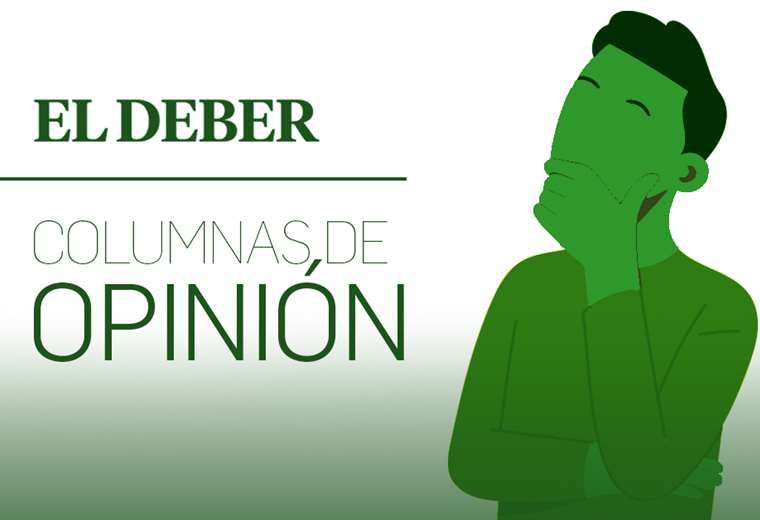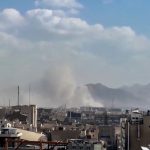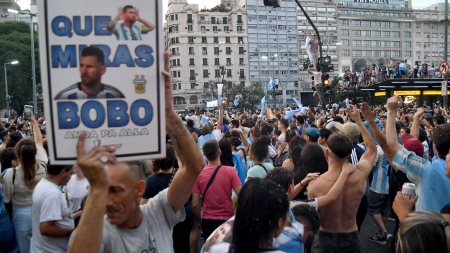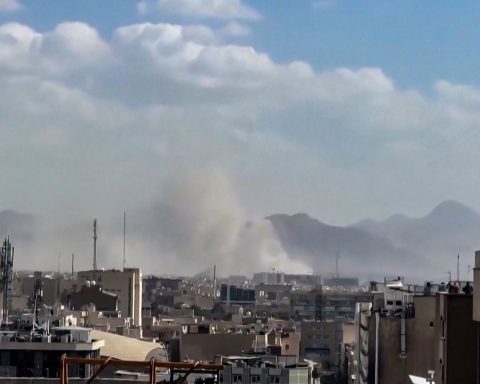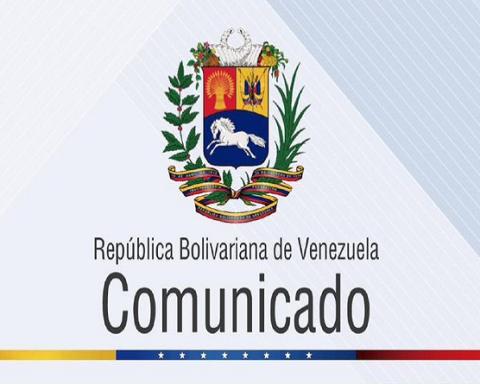December 14, 2022, 4:01 AM
December 14, 2022, 4:01 AM
Respecting the differences between the French Revolution and the last civic strike, it is imperative to point out that both events, despite the fact that their activities ceased at some point, nevertheless left important legacies. The first was important in the independence of all the countries of America and the rupture of the monarchies in Europe. Now the second and despite the deniers who insist that it did not achieve its goals, we will see that it is not so. For this reason and for a better understanding of the success of the actions of Santa Cruz, we must analyze that it has a similar breeding ground and resulting paradigms as the revolt of the Gauls.
The French Revolution was a social and political process that took place in France between 1789 and 1799, originated from: 1) “The Deteriorated Political Situation”, where only the nobility could occupy the most important political and military positions. They lived under an authoritarian regime (absolutism) in which the nobility and the high clergy dominated the wealth. 2) “The Economic Crisis”: only the third estate (the bourgeoisie and the peasants) were the ones who paid taxes and since bad harvests caused problems in the supply of basic foods, such as bread. Added to the droughts and frosts that caused shortages and the escalation of unemployment. They provoked a vicious circle that affected the State’s ability to face its debt, giving rise to a deep financial crisis.
3) “Limited Freedoms and Rights”, the absolute monarchy in charge of Louis XVI gave no option of sovereignty other than to God; therefore, there was no division of powers. Because of this, the rights and freedoms of the Franks were very limited. As a consequence, the intellectuals of the bourgeoisie developed the bases of the “Declaration of Human Rights”, which are based on the principles of “Liberty, Equality and Fraternity”. 4) “The Moral and Religious Crisis” provoked the development of an intellectual revolution that questioned the regime that reigned at that time. The distrust of citizens in the government grew by leaps and bounds and new reference figures such as Voltaire, Montesquieu and Rousseau emerged.
However, despite the great advances, the French insurrection collided with the opposition of the European powers, since their ideas were contrary to what the European monarchies represented. For this reason, France went to war with various European states, managing to survive international harassment. However, despite the struggle carried out, the absolute monarchy of Louis XVI ended up being replaced by the Empire of Napoleon Bonaparte.
However, Napoleon’s imperialist appetites, which a priori ended with the French revolution, its legacy consisted of the “End of the Absolute Monarchy”; more “Rights and Freedoms”; the privileges of the church and the nobility were abolished; and the Extension of the principles of the French Revolution, of liberty, equality and fraternity, crossed the borders of the Gauls and spread throughout Europe; becoming the ideals that influenced the wars of independence in America.
For its part, the civic strike, like the French Revolution, stems from a social and political process consisting of opposition to the centralist policies, submission and pro-roguism of the two MAS administrations, with actions such as “21F”. ; the march of doctors against a certain compendium of penal laws; the civic strike against electoral fraud; civic strike against a package of laws that sought greater control from the executive to society and finally, the last civic strike for the electoral census. As can be seen, all the aforementioned actions achieved their goals and stopped the MAS from seeking a greater concentration of power in the executive branch or prolonging its government administration.
The last civic strike, a priori, before the Bolivian nation, exposed the government’s claims to carry out the census within a period that would yield its results so as not to be applied in the next elections of 2025 but in those of 2030, relegating rights to co-participation tax of the department and most importantly, do not review the electoral roll, which in the way it is designed favors the government with more seats in places related to the MAS and to the detriment of the per capita distribution. Likewise, it instituted to review the future political relationship of Santa Cruz with the Bolivian State, through the right to reconsider its relationship with it and to reconsider constitutionally viable alternative options to decide its destiny, protected by the “International Right to Self-Determination of Peoples”. .
Such determinations evidently resonated in the rest of the country, it is enough to verify the opinions expressed in the media of other departments of the republic that, through their illustrious thinkers, coincide in pointing out that Santa Cruz was placed at the forefront and standard-bearer of national interests, among them, the census and its repercussions; as well as, to cut short the government’s perennial attempts to reproduce itself in the government. A corollary to these achievements is that the presidential spokesman, Jorge Richter, admitted that the government gave in with the Census Law to “pacify” Santa Cruz, revealing that the government was evaluating two paths: the militarization of the department through a state of emergency, and the another, to look for a peaceful solution, like the one that was decanted through the Legislative Assembly.
Conclusively and to the regret of the deniers of the Santa Cruz victory, like the achievements of the French Revolution, Santa Cruz was able to make the Census official and its maxim of “Self-determination of the Peoples”. Although it has a law and a Census decree, in the face of erratic government conduct, it is up to the citizenry to control compliance with said registration. Coupled with this and by virtue of the threats of criminal prosecution of the people who supported the strike, the Civic Committee must demand the independence of the administration of justice (Judges, Prosecutors and Police) so that they are not used as repression of the population; It is strange that the Civic Committee has not done so to date, since its own president has been suffering in his own flesh such legal intimidation.
